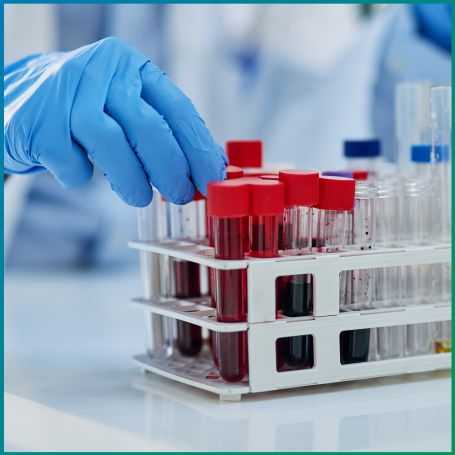
The Folic Acid Test is a blood test used to measure the level of folate (vitamin B9) in the body.


Folic acid is essential for DNA synthesis, red blood cell formation, and overall cellular health. This test is particularly important for assessing folate deficiency, which can lead to anemia, fatigue, and complications during pregnancy, such as neural tube defects in developing fetuses.
Monitoring folic acid levels is crucial, especially for individuals at risk of deficiency, including pregnant women, those with malabsorption disorders, or individuals on certain medications that interfere with folate metabolism. A folate deficiency can lead to serious health issues, including megaloblastic anemia, which is characterized by the production of abnormally large and dysfunctional red blood cells. Early detection through this test can help prevent such complications and guide appropriate supplementation or dietary changes.
1. Pregnant Women: To ensure adequate folate levels for fetal development and to prevent birth defects.
2. Individuals with Anemia: Those experiencing symptoms of anemia such as fatigue, weakness, or pale skin should consider this test.
3. People with Malabsorption Conditions: Individuals with gastrointestinal disorders that may affect nutrient absorption, such as celiac disease or inflammatory bowel disease (IBD).
4. Those on Certain Medications: Individuals taking medications that may inhibit folate absorption should regularly monitor their folic acid levels.
At Diagnopein in Pune, we offer the Folic Acid Test with affordable pricing, advanced technology, and a clean, hygienic environment. Our skilled staff ensures accurate and reliable results, providing you with the essential information needed for effective health management. With a focus on patient care and comfort, Diagnopein is your trusted partner for folic acid testing in Pune.
A blood sample is collected from a vein and analyzed to determine folate levels.
Fasting is not necessary for the folic acid test, making it convenient for patients.
Low levels suggest a deficiency that could lead to anemia and other health issues, indicating a need for dietary changes or supplementation.
Results are typically available within a few days, depending on the testing facility.